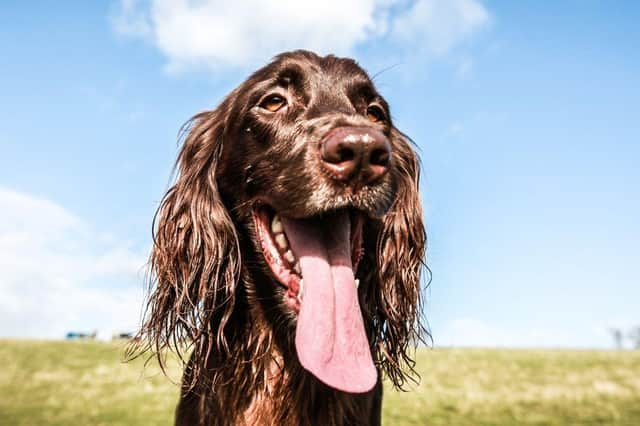Why Is My Dog Panting So Much? Here's why your adorable pup is panting more than usual - explained by a celebrity vet 🐶


Dog ownership is at an all-time high at the moment, with surging Kennel Club registrations and one-in-three households now including a four-legged friend.
That means there are a huge number of first-time dog owners out there who are paying close attention to their pup’s behaviour.
Advertisement
Hide AdAdvertisement
Hide AdOne thing that can be alarming is when your dog starts to pant exessively – sometimes even when they’ve not been exercising.
To help out, Peter Wright, Harringtons Advanced Science Diet Vet and the star of The Yorkshire Vet, has shared his expertise on the subject.
It’s only natural
Like shaking, panting is often a natural phenomenon in dogs. They can pant when excited or stressed; very importantly when they are too hot, they pant to cool down. Dogs can only sweat through their foot pads, with no sweat glands throughout the rest of the body.
Keep hydrated
When a dog is panting, they’re expelling water vapour from their lungs - allowing hot, wet air to be expelled from the body to cool themselves down. After vigorous exercise or in periods of heat stress, dogs’ body temperatures rise, leading to excessive panting. When this happens, they can become dehydrated, so ensure they always have access to plenty of fresh water.
When to see the vet
With younger and adult dogs, you may notice your pet panting when in cooler conditions or without exercise. This is usually due to pain or illness. You can determine the cause with a visit to the vet.
Age is a factor
Senior dogs may develop arthritis, and because this comes on gradually, an owner may not be aware of it until a veterinary consultant looks at them, where they can prescribe medicine and offer vet approved dog food to support joints. Before it is noticed, it can cause discomfort for a pet, leading to panting.
Comments
Want to join the conversation? Please or to comment on this article.